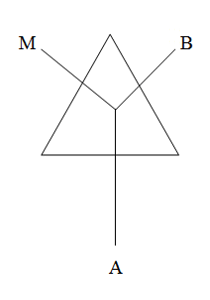|
EL, Hamburg, 5-24-'08
Today desire goes out of the astral body, interest lies in the I, and
pleasure is in the etheric body. Previously interest was in the astral
body, desire was in the etheric body and pleasure was in the physical
body; this was in the Lemurian epoch when there was no disease, food
flowed in and out, and egoless people without interest in outer things
changed bodies like clothes. Pictures arose in the astral body that told
a man what was good or harmful for him. He was interested in the
pictures that arose within him and this interest remained when he
changed bodies. This was a permanent astral consciousness. This changed
when the I that had been in the spiritual world sank into man and
permeated him more and more. Interest moved into the I. The I drew
interest up to itself, it drew everything up to its own realm. Thereby
it tied itself off from the Gods, and the result was death. Everything
that doesn't happen for the whole but for a single something that's
separated from the whole, and therefore is egoism, finally leads to
the destruction of this single thing, to death.
Rosicrucianism calls this interest that goes out from the ego
estimatio. We must raise our interest to the astral plane
again; whereby we gain imaginatio. When desire is brought back
into the etheric body we attain incantatio or
inspiratio. And by putting pleasure back into the physical body
we get intuitio.

When we no longer follow personal interests in our actions, when we do
what we have to do in such a way that we follow the inner necessities
that a rightly understood law of karma places on us, when we give our
deeds to the outer world with inner equanimity and in accordance with
this law, then we overcome estimatio through our own higher I
who is then the doer. And when bound by the strength of this I we no
longer let ourselves be driven by the streams and influences that
storm in on us from the outer world we can then make right judgments
about the outer world and we gather wisdom from it. It reveals its
inner nature to us when we stand before it with equanimity, and when
we think and act in such a way that we know: All of my thoughts,
feelings and deeds influence the whole, nothing exists for itself; I
want to give everything to humanity, let everything be dedicated to
the service of mankind. When this lives in a pupil as the basic
feeling, he then develops Buddhi, the Christ principle. Thus he lets
the higher triad arise from the given figure: Manas, Buddhi, Atman.
|